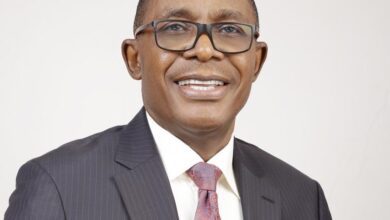Nigeria Set To Reconfirm Position As Biggest Economy In Africa

By Sunday Etuka, Abuja
Following the ongoing exercise to rebase the nation’s Gross Domestic Product (GDP) and Consumer Prices Index (CPI) estimates, Nigeria is set to reconfirm its status as the biggest economy in Africa.
The last GDP rebasing was done in 2014, which saw Nigeria’s estimate of its GDP increased by 89%, moving it from Africa’s second biggest economy after South Africa to the biggest economy.
Speaking in his Keynote Address at the Sensitisation Workshop for Stakeholders on the GDP and CPI Rebasing Exercise, held on Thursday in Abuja, the Statistician General of the Federation and Chief Executive Officer of the National Bureau of Statistics (NBS), Prince Adeyemi Adeniran said, the workshop was orgainsed not only to sensitise the critical stakeholders in this process but to also solicit feedback, inputs, and support towards achieving an output that will satisfy the needs of all users and reflect a better picture and understanding of nation’s economy.
He noted that “in an ideal situation, the exercises which are routine statistical practices, need not attract much noise and ceremonies, but given the delays and irregularity in the conduct of some major statistical activities, this has become a significant part of Bureau’s data production”.
Furthermore, he said, given the informal nature and structure of the nation’s economy, which creates an additional burden for data collection, the exercises have become much more pronounced in the Bureau’s statistical production.
The NBS boss said, “It is for this reason therefore, that when the decision was made to embark on the rebasing exercise, we made it a cardinal objective to ensure inclusivity, collaboration, and partnership throughout the process of these rebasing exercises.
“Our experience in recent times has shown that we have no other option than to continue to engage and foster partnerships with all constituents of the statistical system for better results.
“As a matter of fact, we are expanding the system to accommodate more stakeholders (producers, suppliers, users) of data, to ensure that we harness all available avenues and opportunities to collect, process, and disseminate statistics to support policy decision-making and monitoring in Nigeria.
“In an era of rapid change and global interconnectedness, the need for accurate and timely data has never been greater, and this is why we are engaging with stakeholders like you today, and we are committed to having more of these engagements with other relevant stakeholders”, he said.
Adeniran said, “at the culmination of this process, critical stakeholders will be invited once again to a validation session where the preliminary results will be deliberated before the final public dissemination.
“Just like many of you, we look forward to this time with excitement and great anticipation”, he added.
Earlier in his Goodwill Message, renowned Economist, Prof. Ode Ojowu noted that since the last GDP rebasing in 2014, Nigeria has witnessed a structural shift in the field of technology and digital sectors, encompassing the rise and adoption of fintech, e-commerce, and digital service.
He said, “in Agriculture, there is the spring up of various agricultural value chains like agribusiness, processing, commodity exchanges and export activities; in renewable energy, we witness the growth in solar and other renewable energy production”, he said.
Prof. Ojowu who was the one-time Commissioner for Finance and Economic Planning in Benue State, informed that as in the 2014 rebasing, the current exercise to rebase the GDP will alter the values of the current macroeconomic indicators which are used by the government to inform policymaking.
However, he said, “the piece of advice here is that while we may jubilate over the size of the GDP that could reconfirm our position as the biggest economy on the continent of Africa, we will do well to continue to critically examine the composition of the GDP, its ability to create employment, enhance incomes and generate revenue, sector-by-sector”.





